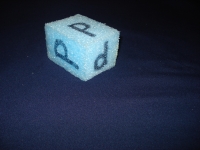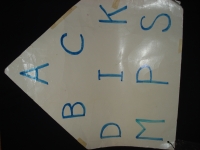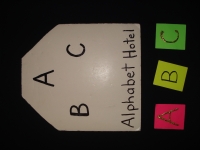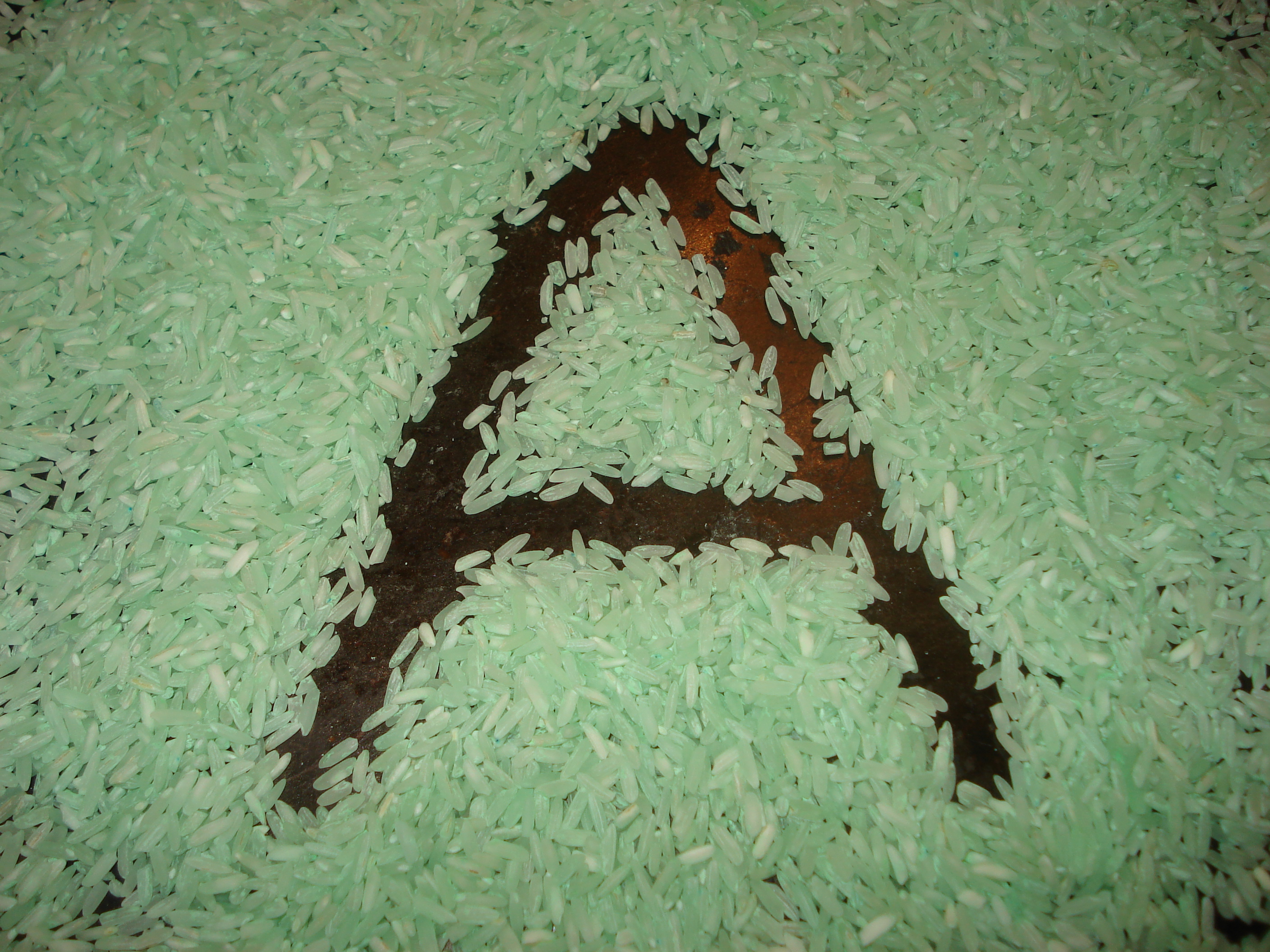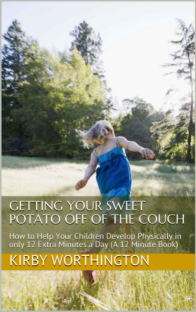However abstract learning letter names and sounds can be, normally children can do it. It is not too different and equally abstract when a child who has never been to a farm looks at a picture of a cow and says, "Cow...mooo." As you may have read in the previous post, the Alphabet Hotel homemade game can be a great way to get your child learning letters. Now, we'd like to give some options to grow this tool into a toolkit!
When you sense that a child may be interested in reading, start with games like Alphabet Hotel. It can be played by different ages and levels of pre-reading children. A two-year-old may play by matching the letters while an older sibling can name the letters as they match them, and an even older child can give the name and sound that the letter makes. If a child is not interested, leave it and try again in another month. Try using 3D letters, colorful letters, visually attractive and interesting letters.
Alphabet Hotel can be expanded with lower case letters. Suddenly Mrs. B has a baby ("b") that needs to get back to mama in her hotel room. Again, start with two to three letters, then move up to more letters. It is important to note that it is advised never to use these letters together: E & F, C & G, H & A. As you can see, these look too similar and could be very confusing.
The first step in pre-reading is reading to your child as they grow inside and can hear what your saying, the rhythms and sounds of reading. When they are born, start naming whatever they are looking at (get other people to do this too). Name whatever they hold...if it's a rattle, name it but if they shake it, say "shake".
Once the child learns the sounds to make their own "sound language" treat those as real words. For example, in giving the child the choice of milk or juice to drink, pronounce each option very correctly then if they respond with "mmmm" say, "You want milk." You will know if this is not what they want as they will show you with their unhappiness. At that point you can respond with, "Oh you want juice." This is real talking for them at this stage.
A lot of children learn the alphabet song while having no idea what the letters look or sound like. There are games that can introduce children to these shapes and sounds. When playing matching games to learn letters, use no more than three different letters as a start (and use three letters that look very different from one another, ie ABC). One game that is very basic and fun for the child is Alphabet Hotel. To make this game, begin by writing on large, colored cards the three letters you will be using. Then take a piece of cardboard and make pockets that the three cards will be able to fit into, labelling these pockets with the same letters (be sure to make the letters the same size as on the cards). Play begins with hiding the cards (make as many sets of these letters as there will be children playing - one set per child) then telling the story of the Alphabet Hotel...how Mr. A, Mrs. B, and Ms. C are lost. They have gone missing, and what's more, they cannot find their room! The child will search for the cards and locate which room they belong in (their match) on the board by sliding the letter card into its corresponding pocket. When playing this game be very encouraging with excitement proclaiming: "Oh you found Mrs. B! Can you put her in her room?"
"One of the best predictors of whether a child will function competently in school and go on to contribute actively in our increasingly literate society is the level to which the child progresses in reading and writing. Although reading and writing abilities continue to develop throughout the lifespan, the early childhood years—from birth through age eight—are the most important period for literacy development." -- The International Reading Association
As you can see from the above quote, writing skills are crucial for ensuring success in school and life. The good news is that activities that teach writing are things that kids love to do!
The first step to learning to write is strengthening finger and hand muscles. For ideas on how to do this, see this post.

